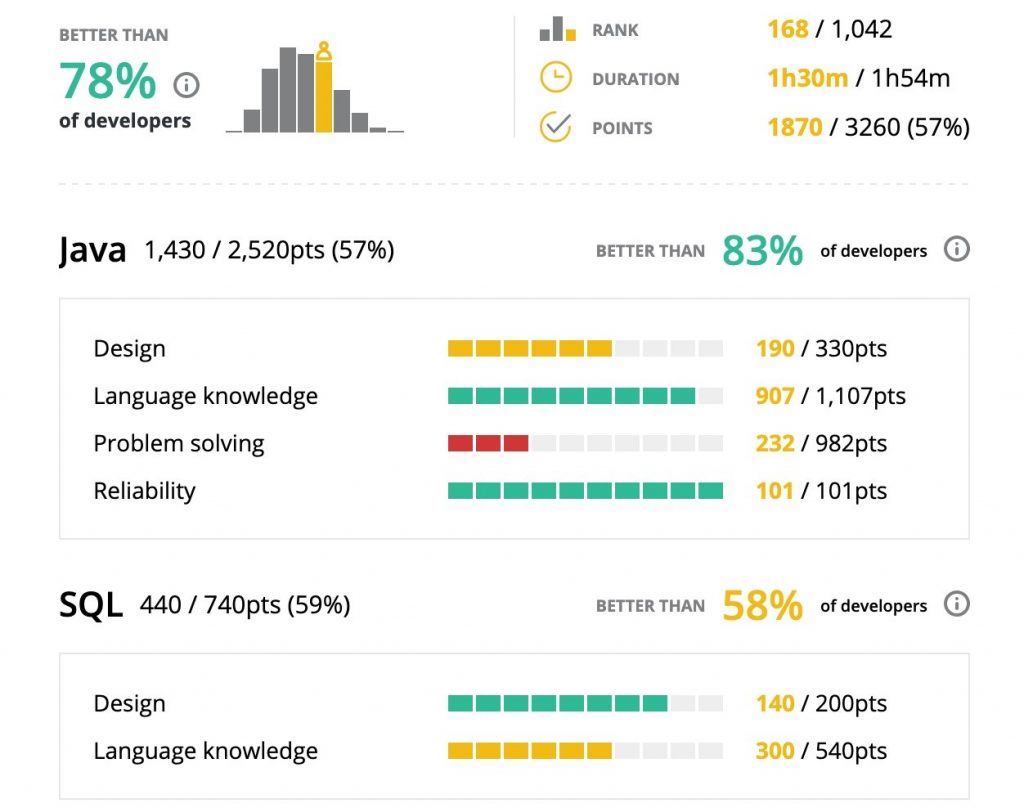In today’s economy, most businesses wanting to grow are in need of smart technological solutions. For most big corporations and small enterprises, there’s an almost unavoidable requirement for specialized technological skills. As technology becomes inevitable to modern affairs, the demand for software and advanced development solutions continues to rise.
Typically, most businesses either hire an IT outsourcing company or an in-house developer. There’s a long-lasting debate on which of the two is most suitable. Knowing which of the two solutions is best for your own specific hiring situation is going to save you a lot of worry.
Let’s break down and compare the merits of hiring an in-house developer for your project over outsourcing your development work to freelancers.
Oh, by the way, we’ve put all of our articles and resources on how to find and hire developers here.
What is an in-house developer?
In-house developers are tech professionals that work for you full time and help to actualize your company objectives.
Having bought into your idea, they’re usually emotionally involved in your project’s outcome and put in their time and effort. That’s great! This type of developer is required for a lot of reasons. On the one hand, they may be less likely to disappoint or abandon your project halfway. Also, they have the potential to be long term team players if they like the job
You’ll definitely need to find an experienced in-house development team if your digital product or project amounts to the core of your business. This team will be readily available to help you handle maintenance, website management, updates, and enforce changes when they are required (it’s all part of their job description!). A lot of reputable start-ups (like Slack) have imbibed this method of product development. These companies have found benefit in working with experienced in-house developers that have a better understanding of their company goals, culture and the job at hand.
What are the advantages and disadvantages of in-house development of software?
Advantages
- Adaptability and knowledge
Full-time developer employees are more entrenched in the organization’s daily affairs, and the knowledge that comes from this helps them function at a more relative capacity in the company. Priorities can change momentarily, and an in-house developer will catch on to these new developments without being briefed about changes in the job.

- Personal investment
There’s also a special kind of involvement that being hands-on with tasks brings. Developers invest their energy in your vision, they know exactly what their job entails.
Most freelancers define job success in the development space by securing jobs, actively working on multiple projects, and completing tasks meted out to them. Companies, on the other hand, define success by building profitable enterprises that innovatively help to disrupt markets. This doesn’t just happen in a day; it takes a lot of commitment and dedication.
Outsourced, remote freelancers can only go so far. To go the extra mile, you’ll most probably end up having to find in-house technical experts (in a long-term capacity).
Disadvantages
- Time
It takes quite some time to find and recruit developers. The process of building an entire team and training them to function effectively also takes time.
Slashdata reports that in 2019, the number of software developers globally was about 18.9 million. It is projected that by 2030, this number will reach 45 million. So there’s a growing pool of developers available to you. But how do you find them?
Additionally, you’ll need to set extra time aside to allow for a team that has never worked with each other to breed cooperation and trust.
- Expense
Certain overbearing costs come with hiring full-time in-house developers. The salary of these experienced professionals may be an additional burden on your company. These extraneous expenses can be avoided by outsourcing (the cost of office space rental or health insurance, for example) and add up inclusively with every developer you hire.
What is outsourcing in development?
Outsourcing roughly defined is the delegation of certain projects, tasks, or production processes to external bodies (specialized companies or skilled individuals). These entities can be based in your own country or a close-by country in the same zone (Nearshoring) or situated offshore in some other remote geographical location (Offshoring). There are many web-based platforms where you can find experienced professionals who can help you to get the job done.
On most occasions, Nearshoring is used to find freelancers to handle complicated and innovative projects. The kind of jobs that demand skillful, experienced and dedicated teams that can work adaptively with the clients and their co-workers. You can find freelancers on different web-based platforms. Upwork and Fiverr, for example, are websites where freelancers and clients can interact.
There is currently an undeniable global shortage of tech talent in Western countries. Sadly, as we mentioned earlier, the number of vacant programming jobs is expected to increase.
With outsourcing, most times, the main incentive is to reduce costs and avoid paying huge salaries. It is, however, crucial to recognize that there are challenges that may arise when utilizing outsourcing services or websites to find experienced freelancers. Some of these potential issues may include time zone differences, cultural differences, and language barriers.
What are the advantages and disadvantages of outsourcing software development?
Advantages
- Cost savings
You definitely save cash and avoid huge salary payment when you outsource. In fact, it’s a huge motivation for most of the people that sway in this direction. They outsource developer jobs, fully aware that they can slice their hiring costs in half by hiring from another country. The saved revenue can be otherwise put towards the project outcome.
- Facilitated management and organization
When outsourcing your project to exterior forces, you minimize your management worries. All you really need to worry about in this situation is checking the tasks executed by the freelancer or contractor you outsourced.
The development company itself would generally be in charge of information relay, drafting meeting timelines, tweaking revisions, etc.
- Flexibility and specific skills
A major, often overlooked pro of outsourcing to experienced freelancers is that it imbues you with the means to bring a veteran professional software engineer in on your project without any long-term commitments. You can shuffle the skill sets you require and hire periodically to fit your task timeline.
- Productivity
When you outsource, it helps you to avoid constraints like time taken commuting, greeting fellow workers, basic office distractions, and lunch breaks. This may seem negligible, but these interruptions accrue into considerable amounts of time that may affect developers’ effectiveness.
Disadvantages
- Quality control
A major hiccup people face in the realm of outsourcing to freelancers is quality control. How does one ensure that the developer or freelancer will deliver top-notch code? Can you judge developers on outsourcing sites by the portfolios they put up?
The bitter truth is that you can’t be sure of the quality you’ll be getting.
A common route recruiters take to verify their candidates is to have them do technical interviews. Certain outsourcing websites like oDesk and eLance provide screening assessments that candidates can take on their own website (although, these tests aren’t necessarily relevant to your project).

By using a CodinGame Assessment test to screen external developers, you’ll avoid any mishires or setbacks.
- Team collaboration
A major challenge when outsourcing to freelancers with developer skills is collaboration. Relative to the country you decide to hire from, there may be huge cultural differences to contend with. It’s important to build communication bridges in the initial stages of working with foreign developers to ensure that nothing important is lost in context down the line.
Development is a naturally collaborative process; you need to be sure that the developers you select will be able to communicate and work efficiently with your own team.
- Logistics
There are also some basic logistical issues that may arise from working with someone in a totally different region or time zone. Project advancement meetings can be difficult to schedule.
Cultural and non-technical mishaps like this are usually avoided by finding and hiring project managers to oversee the job. They ensure that most of the hiccups you may face are handled swiftly.
–
If you’re still wondering about which of the two options listed above is suitable for your particular situation, you should try drafting a pro and con list. According to your budget, timeframe, skill requirements, etc. which option boasts the most pros?
Hiring an experienced programmer to feature in your projects on a full-time basis is definitely a good choice, but have you weighed it against your goals, resources, and priorities?
As skilled, talented and experienced developers get more accustomed to the freelancer lifestyle and the flexibility it entails: they continue to cumulatively nurture their knowledge on a wide range of projects. These software gurus may be just what you need in the short term – to apply their gained expertise and give your work the extra leverage it needs. Plus, they’re a lot cheaper than full-time in-house developers.
Take your time and screen your options.

